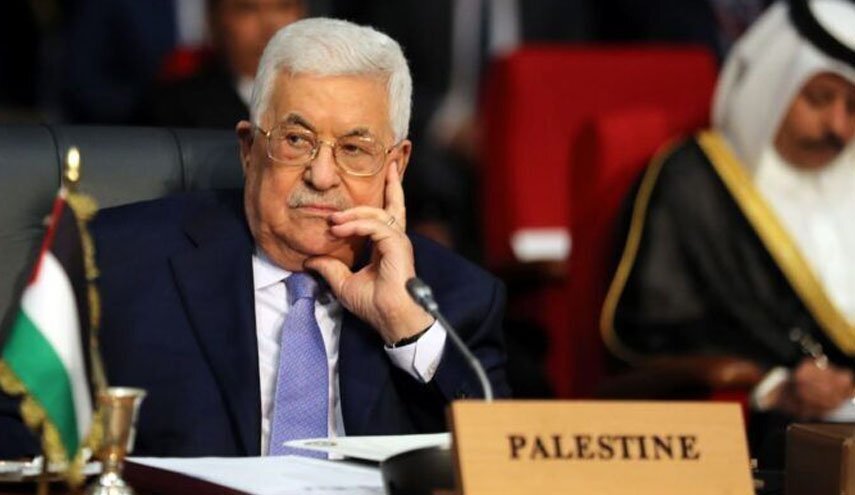May 17, 2021

TEHRAN – As Israel continues to pummel Palestinian civilians in Gaza with airstrikes and cracks down on their compatriots in the West Bank and the Green Line zone, the internationally recognized leader of the Palestinian National Authority (PNA) is being caught between a rock and a hard place.
Mahmoud Abbas, the president of the PNA, is going through one of his worst experiences as the leader of the Palestinian people. On the one hand, his perennially extended hands to the Israelis for appeasement talks have gotten him nothing. Israel continues to brazenly push away any meaningful solution to the decades-long Israeli-Palestinian conflict while shamelessly pursuing state-sanctioned racist policies such as expanding settlement programs and evicting Palestinians from their ancestral homes.
On the other hand, the Palestinian people, groaning under the weight of Israeli hubris, are turning their back on the PNA and its leader. They saw Mahmoud Abbas unable to do anything when the Israeli regime showed disrespect for democratic trappings by preventing the PNA from holding the long-awaited elections in al-Quds (Jerusalem).
Mahmoud Abbas also failed to prevent the Israeli inhumane and racist decision to evict a number of Palestinian families from their ancestral homes in Jerusalem’s Sheikh Jarrah neighborhood and replace them with extremist Jews, a move that caused an international outcry and eventually provoked Palestinians in the Gaza Strip to strike back at Israel.
And when Israel began its campaign of air raids against civilians in Gaza Abbas also failed to organize an international diplomatic pressure campaign against Israel to stop it from continuing its killing spree in the coastal strip. This was despite the fact that public opinion in the West was overwhelmingly in favor of Palestine because Israel’s behavior in Gaza is untenable. At the end of the day, no one can come to understand why Israel should demolish a tower hosting international correspondents and raze to the ground residential towers.
The image of children and women being taken out of rubble weighed heavy on the conscience of humanity.
As Israel pounded Gaza with rockets and artillery shells, several leaders and diplomats in the region and beyond began a flurry of diplomatic efforts to put pressure on Israel to stop its disregard for international law and human rights.
Abbas, however, was almost absent from these efforts. He hit the headlines only when he, all of a sudden, spoke with U.S. President Joe Biden, who is widely seen as complicit in the Israeli atrocities because he stopped short of putting real pressure on the Israeli regime. In fact, Israeli Prime Minister Benjamin Netanyahu even boasted that Biden supports the Israeli crimes against Gaza. This happened at a time when even Biden’s fellow Democrats believe that Israel is an “apartheid” regime.
“Apartheid states aren’t democracies,” Congresswoman Alexandria Ocasio-Cortez said in a tweet that garnered more than 310,000 likes.
Recent developments in Palestine, especially in the West Bank and in Arab cities inside Israel, showed how irrelevant Abbas became. Jibril Rajoub, a Palestinian leader close to Abbas, admitted his boss’s isolation by saying that no Arab leaders called Abbas since the latest round of Israeli violence began.
Abbas faces growing criticism from Palestinian intellectuals to keep up with the people he claims to represent. For example, the Palestinians were in favor of holding the election even after Israel banned Palestinians residing in occupied East Jerusalem from participating in the election. But some Palestinian voices believe that the PNA should have gone forward with its decision to hold the election.
“The excuse of Jerusalem [PNA] to justify the postponement of the Palestinian election is a flimsy one, and the strongest image we had hoped to see was stolen from us, which is a picture of an Israeli soldier confiscating an election box or a soldier arresting voters for voting in elections,” Said Azmi Bishara, a prominent Palestinian intellectual and former member of the Knesset, said in a recent interview with Al-Araby Television.
Others have long criticized the PNA for continuing what came to be known as “security coordination” with Israel, a type of cooperation mainly aimed at boosting Israel’s security at the expense of the Palestinian struggle for basic human rights.











No comments:
Post a Comment